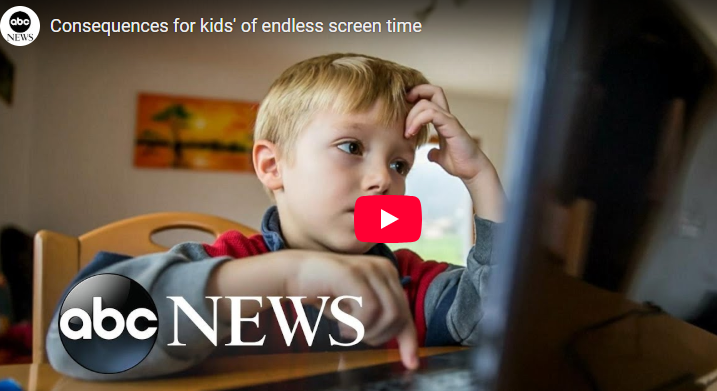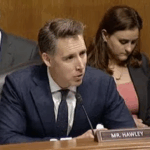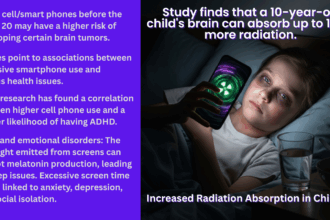Zero screen time recommendations for infants
The recommendation for zero screen time applies to infants and very young toddlers, with a sole exception for video chatting.
- American Academy of Pediatrics (AAP): The AAP recommends no screen time for children younger than 18 months, with the exception of video chatting with family. For children 18 to 24 months, media use should be limited to high-quality educational programming viewed with a caregiver.
- World Health Organization (WHO): In 2019, the WHO released guidelines recommending no sedentary screen time for infants under one year of age. For children ages one and two, they recommend no more than one hour per day.
- Centers for Disease Control and Prevention (CDC): The CDC’s Learn the Signs. Act Early. program also recommends no screen time for children younger than two, with video calls as the only exception.
Screen time recommendations for older children
Screen time guidelines for older children vary slightly but generally increase with age and place an emphasis on educational content and co-viewing with parents.
| Age Group | AAP Recommendations |
|---|---|
| Ages 2 to 5 | Limit screen time to one hour or less per day of high-quality educational content, with a parent or caregiver present. |
| Ages 6 and older | Parents should set consistent limits on both the duration and type of media. Screen time should not displace physical activity, family time, or sleep. |
Why screen time is limited for young children
Research indicates that infants and young children learn best through direct, face-to-face interaction and hands-on play. Studies on early screen exposure have shown potential negative effects, including:
- Altered brain activity
- Cognitive impairment
- Developmental delays in communication, problem-solving, and social skills
- Reduced attention levels
- Disrupted sleep patterns
Exposure to excessive screen time during the critical early years of a child’s development can have potential long-term cognitive impacts, particularly concerning attention, executive function, and language skills. These effects are largely linked to the displacement of real-world interactions and the passive, overstimulating nature of much screen-based content.
Executive function and attention
Excessive screen time in early childhood has been associated with deficits in executive function and attention, which are vital for impulse control, focus, and managing multiple tasks.
- Attention deficits: Rapidly paced, highly stimulating video content can overstimulate a child’s developing brain and wire it to expect a constant, exaggerated stream of visual information. This may reduce a child’s ability to focus on slower, real-world activities and can be correlated with symptoms of Attention-deficit/hyperactivity Disorder (ADHD) later on.
- Reduced self-regulation: Constant stimulation from screens means a child is rarely bored, which is a key part of learning self-regulation and impulse control. When children are regularly pacified with a screen, they have fewer opportunities to develop internal coping mechanisms for frustration.
- Brain structure changes: Studies have shown that increased screen time in children aged 3 to 5 is associated with changes in the brain’s white matter, which is important for the organization of connections between brain regions governing attention, language, and visual processing.
Language and communication skills
Research shows that early and prolonged exposure to screens can delay the development of language and communication, as this depends heavily on face-to-face social interaction.
- Delayed language acquisition: For every additional hour of screen time, one study found that toddlers spoke six to eight fewer words on average. Another found that one-year-olds with more than four hours of screen time daily showed developmental delays in communication and problem-solving at ages two and four.
- Poorer learning from screens: For young children, learning new words and concepts from a screen is not as effective as learning them from a live person. In fact, studies show infants have difficulty transferring knowledge from a 2D screen to a 3D object in the real world.
- Reduced verbal interaction: When a screen is on, it often reduces the frequency and quality of parent-child interaction, which is essential for language development. Passive screen time, like having the TV on in the background, can negatively affect language acquisition, even if the child is not actively watching.
Problem-solving and memory
Screen time may hinder the development of a child’s ability to learn and transfer knowledge to real-life situations.
- Learning limitations: Excessive screen time has been linked to problems with learning and memory, as the brain adapts to the demands of screen content rather than real-world experiences.
- Difficulty with transfer: Children who learn from screens often struggle to apply that knowledge to situations in real life. For example, a child might learn the word “cup” from an app but be unable to identify their own cup at home.
- Reduced imagination: Passive screen viewing, which requires little engagement or imagination, can displace more stimulating, interactive play. This can affect a child’s ability to engage in imaginative visualization and problem-solving.
HARVARD: The digital lives of children: Impacts of screen time on health and play
The average child in the United States spends more than five hours on a screen every day. What is the impact on mental and physical health? Is screen time replacing play time, or can the two coexist? In this discussion, experts will look at why kids are on their devices so much; why some children may be disproportionately affected by overuse; and how kids and their families can establish a healthy relationship with the ubiquitous screens in our everyday lives.
SPEAKERS ■ Leah Austin, President and CEO of the National Black Child Development Institute ■ David Bickham, Research Director at the Digital Wellness Lab at Boston Children’s Hospital ■ Scott G. Eberle, Former Editor of the American Journal of Play and Former Vice President for Interpretation and Play Studies, The Strong National Museum of Play ■ Jason Nagata, Associate Professor of Pediatrics at the University of California San Francisco, Senior Editor for the Journal of Eating Disorders MODERATOR ■ Leslie R. Walker-Harding, Ford/Morgan Endowed Professor and Chair of the Department of Pediatrics, University of Washington School of Medicine ─────────────────────
Sharing diverse perspectives on public health. Speakers do not speak for Harvard.












